Department of Ecology, Evolution, and Marine Biology
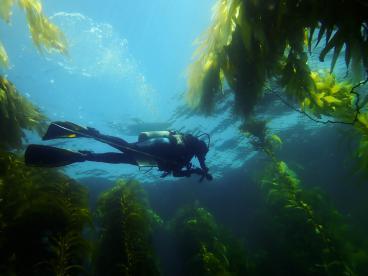
The Department of Ecology, Evolution, and Marine Biology (EEMB) at UC Santa Barbara studies how living organisms interact with their environments and with each other, shaping and being shaped by the world around them. Their research interests span biological scales from the physiology and morphology of the individual, to the behavior of groups, to the functioning of ecosystems. They examine how organisms function in their present environments, how they have been shaped by their evolutionary past, and how they may adapt to a changing world. For example, they study whether and how species may be able to adapt to a changing climate, seek ways to identify and control invasive and harmful species, and identify patterns in biodiversity and its loss.
The department offers several specialized majors leading to a Bachelor of Science (B.S.) degree. Research opportunities in the laboratory and the field are available with faculty, post-doctoral researchers, and graduate students. Students have the opportunity to conduct independent research and participate in a wide variety of internships ranging from restoration ecology to veterinary and human medicine. Degrees in the biological sciences are excellent preparation for graduate and professional school or for careers in teaching, private industry, environmental sciences, and the health sciences.
Explore Ecology, Evolution, and Marine Biology
Department of Geography

UCSB Geography is internationally recognized as one of the best Departments of Geography in the world, and we have been ranked among the top doctoral programs in the U.S. by a variety of indices for the last 15 years. Geography’s highly trained and diverse faculty bring together aspects of International Development Studies, Urban and Regional Planning, Climatology, Terrestrial Sciences, Marine Sciences, Statistics and Operations Research, and Environmental Psychology.
The Department offers both undergraduate and graduate degrees, including Bachelor of Arts (B.A.) and Bachelor of Science (B.S.). Students’ engagement, participation, and interaction are both welcomed and strongly encouraged. The geography community offers opportunities through Geography Club, research internships, independent study, visiting speakers/scholars, and events.
Department of Mathematics

The Department of Mathematics at UC Santa Barbara offers B.A., B.S., M.A., and Ph.D. degrees. Departmental research fields include low-dimensional topology, differential geometry, partial differential equations, analysis, algebra, number theory, and computational science. The department also boasts numerous faculty-affiliated research groups and centers.
Department of Molecular, Cellular & Developmental Biology
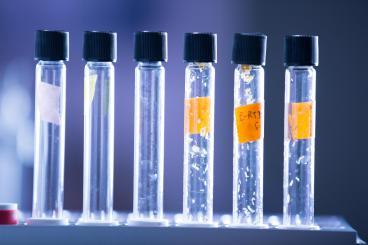
The Department of Molecular, Cellular, and Developmental Biology (MCDB) at UC Santa Barbara is a highly interactive community of over 100 scientists spanning approximately 30 groups, whose research activities bridge the broad spectrum of modern biology. Members of the MCDB community strive to apply both experimental and theoretical approaches to illuminating the fundamental mechanisms through which biological molecules, molecular assemblies, cellular constituents, and collectives of cells dynamically drive living processes throughout the microbial, plant, and animal kingdoms. The department is characterized by a collaborative and collegial environment in which students, postdocs, staff, and faculty bring their collective talents and enthusiasm to the joy of scientific adventure and discovery.
MCDB offers both biology degrees (in concert with the Department of Ecology, Evolution, and Marine Biology), and specialized B.S. degrees. Graduate programs provide rigorous and individualized graduate research training leading to the Ph.D., M.A. and M.A./Ph.D. degrees.
Explore Molecular, Cellular & Developmental Biology
Department of Physics
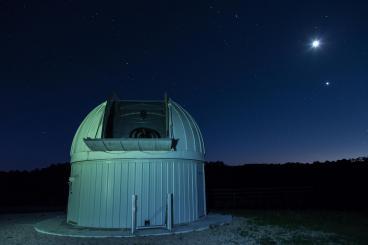
The Department of Physics at UC Santa Barbara is preparing students for a broad range of 21st-century careers in physics, applied physics, astronomy, finance, management, medicine, and a variety of related fields. Through the study of physics, we teach a quantitative approach to problem-solving that is just as relevant to financial analysis or bio-engineering as it is to a research career in physics. We aim to promote scientific literacy among the general public directly through our classes for non-majors and indirectly by encouraging majors to consider careers in education.
The department offers both B.A. and B.S. degrees as well as M.A. and Ph.D. programs that are ranked among the best in the nation. A wide range of research opportunities is available to students at all levels.
Department of Psychological & Brain Sciences

The Department of Psychological & Brain Sciences at UC Santa Barbara has cultivated a tradition of strong, empirically based teaching and research in contemporary experimental psychology. Faculty, graduate students, and undergraduate majors carry out research in several core areas of experimental psychology, including cognition and the perceptual sciences, developmental and evolutionary psychology, neuroscience and behavior, and social psychology. The department's commitment to interdisciplinary pursuits is reflected in exciting new research and teaching collaborations with a variety of other disciplines, including the biological sciences, anthropology, communication, educational psychology, linguistics, and sociology.
The Department of Psychological and Brain Sciences offers B.A. and B.S. degrees, as well as a top-ranking graduate program.
Explore Psychological & Brain Sciences
Environmental Studies

The Department of Environmental Studies at UC Santa Barbara is an interdisciplinary undergraduate program where teaching and research focus on the interactions between human and natural systems. Established in 1970, the program is one of the oldest and largest programs in the nation, and is recognized as one of the most successful undergraduate environmental programs in the world. With over 6,000 alumni, our graduates can be found holding leadership positions, nationally and internationally, in government, industry, law, and dozens of other fields. We pioneered an interdisciplinary educational model that is now widely adapted by other institutions around the globe. We combine a rigorous classroom experience with practical skills training.
Department of Statistics and Applied Probability

The Department of Statistics and Applied Probability at UC Santa Barbara is a diverse community engaged in areas of education and research including Actuarial Science, Financial Mathematics, Theoretical Statistics, Applied Probability, and Biostatistics. This research spans a wide range of interdisciplinary fields including environmental science, computer science, and biomedical science. We are home to the Center for Mathematical Finance and Actuarial Research, an interdisciplinary research center providing leadership in quantitative finance. We also provide consulting services through our statistical consulting laboratory: StatLab.
Degrees offered include both B.A. and B.S. undergraduate degrees as well as M.A. and Ph.D programs. A combined five-year B.S./M.S. degree in Actuarial Science is available to UCSB undergraduates in the Actuarial major.
Explore Statistics and Applied Probability
Department of Chemistry and Biochemistry

The Department of Chemistry and Biochemistry at UC Santa Barbara is dedicated to performing cutting edge chemical and biochemical research in an environmentally and ethically sound manner, in service to the county of Santa Barbara, the state of California, and the world. They are committed to addressing the grand challenges that humanity faces in the 21st century and believe that chemistry and biochemistry are at the forefront of this endeavor. In accord with this mission, they strive towards excellence in undergraduate, graduate, and outreach education, and instill in graduates the skills and drive necessary to meet these challenges. Degrees offered include a B.A. in Chemistry, a B.S. in Chemistry, or a Bachelor of Science B.S. in Biochemistry. Faculty members, postdoctoral fellows, graduate students and undergraduate students in the Department of Chemistry and Biochemistry participate in UCSB interdisciplinary research organizations.
Explore Chemistry and Biochemistry
Department of Earth Science

The Department of Earth Science at UCSB conducts field studies in diverse regions ranging from the tallest mountain peaks of the Himalayas, the wilderness of Antarctica, to the vast undiscovered depths of the ocean floor. Our graduate and undergraduate students participate directly in the excitement of exploring terra incognita. Taught by a distinguished and dedicated faculty (including several members of the National Academy of Sciences, and winners of the UCSB Distinguished Teaching Award), students discover the unfolding planetary drama of which they are part. Like all disciplines within MLPS, Earth Science students have a basic foundation in math, physics, chemistry and biology. From there the student branches into one of the various emphases within the major that best suits their talents and interests.
The Earth Science undergraduate program offers a B.A., five B.S. degrees (five major emphases), a minor, and a five-year Bachelor/Masters degree.
Interdisciplinary Programs

Dynamical Neuroscience
The UCSB Interdepartmental Graduate Degree Program in Dynamical Neuroscience is an interdisciplinary field focused on the study of how the nervous system generates perception, behavior, and cognition. A complete understanding of human behavior and brain function requires a multifaceted approach that includes the construction of formal computational models that can be tested against neural recordings of cells, circuits, and large-scale neural networks. It is a computational approach that goes beyond traditional structure/function correlations. Its subdisciplines include such areas as molecular and cellular biology, genetics, computer science, artificial intelligence, nonlinear systems, statistical processes, physics, and aspects of psychology.
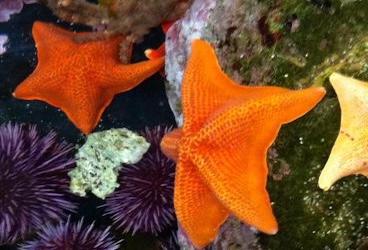
Marine Science Graduate Program
The Interdepartmental Graduate Program in Marine Science (IGPMS) at the University of California, Santa Barbara is a multidisciplinary program bringing together faculty from across UCSB departments to provide graduate training leading to the Master of Science and the Doctor of Philosophy degrees in Marine Science. The diversity of research interests, perspectives, and expertise within the program promotes the development of a broad foundation in marine science and appreciation for interdisciplinary approaches to research and education while allowing students to develop depth in specific subdisciplines within the field.
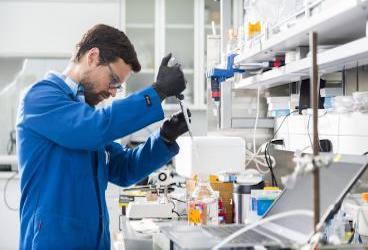
Interdisciplinary Program in Quantitative Biosciences
The Interdisciplinary Program in Quantitative Biosciences (IPQB) at UC Santa Barbara enables cutting-edge research and provides post-graduate education at the interface between the life and physical sciences. We are an integral component of UCSB's widely recognized strength in interdisciplinary research. Drawing its faculty from eight departments and two colleges, IPQB is uniquely capable of developing outstanding young scientists well-versed in quantitative aspects of modern biological science, and ready for leadership positions in multidisciplinary research.